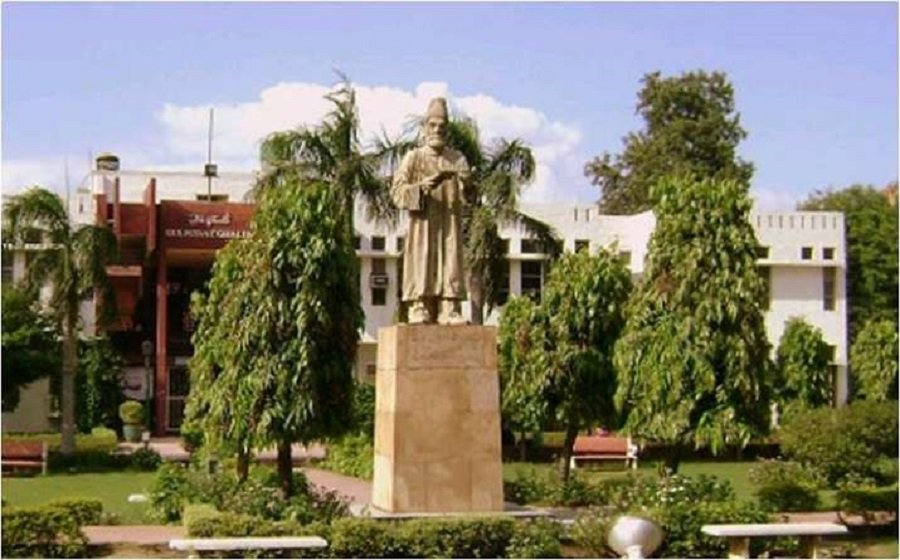
The Delhi-based historic institution has also improved its position in QS Asia University Rankings
NEW DELHI — Jamia Millia Islamia, which often hogs limelight for various political reasons, is in the news again. Albeit, it’s the extraordinary feats that the historic institution has achieved recently that are making waves these days.
Jamia has not only attained national but international accolades. It has been ranked at 186th position in the recently announced QS Asia University Rankings 2022 by the London-based QS University Rankings Agency, improving its position from 203 last year. The QS Asia University Rankings 2022 has featured 687 top Asian universities.
One more feather was added to Jamia’s adorned cap recently. The prestigious Stanford University of the US has included 16 researchers from Jamia in top 2 per cent scientists of the world. The global list was prepared by a team of experts led by John Ioannidis, an eminent professor at the Stanford University, and was published by the Elsevier journal. A total of 3,352 researchers from India got featured in the list prepared by the university.
Stanford University has released two lists. The first coveted list is based on career-long data and eight professors from JMI got enlisted in it. The second list is based on 2020 performance and 16 scientists from the institution got featured in this list.
According to an official statement on JMI website, professors Imran Ali, Atiqur Rehman, Anjan A. Sen, Haseeb Ahsan, Sushant G. Ghosh, S. Ahmad, Tokeer Ahmad and Dr Mohd Imtaiyaz have been included in both the coveted lists, while in the 2020 list of top 2 per cent scientists, professors Abid Haleem, Rafiq Ahmad, Tabrez Alam Khan, Mohd Javaid, Arshad Noor Siddique, Musheer Ahmad, Faizan Ahmad and Tarikul Islam have been included.
Apart from this galaxy, two other gems that have made Jamia proud and have set glorious examples for younger generations to emulate are Dr Mansaf Alam of Computer Science Department and professor Shakeel Ahmad, who served as MK Gandhi Chair in the Department of Geography.
Dr Mansaf Alam
Dr Mansaf Alam and his team have developed an ‘Artificial Intelligence Based Dustbin’. This invention has received patent as an intellectual property from the Patent Office, Government of Australia.
The main objective of the invention titled ‘Artificial Intelligence Based Dustbin’, according to Dr Alam, is to make dustbins smart by enabling them to detect harmful objects like explosives and radioactive materials thrown in them.
“Sensors are fixed with the dustbin, which will intimate by sending signals about any harmful objects dumped in it. We developed this dustbin keeping in mind the security aspect, making the dustbin behave like human beings and work intelligently with the help of AI. It will surely be a useful product for the society,” said Dr Alam.
Professor Shakeel Ahmad
Professor Shakeel Ahmad has been elected as Fellow of The World Academy of Sciences (Italy) for the advancement of science in a developing country.
The academy supports sustainable prosperity through research, education, policy and diplomacy.
According to the information provided by JMI, professor Ahmed is an expert in water sciences and taught at the Centre for Disaster Management as well as the Department of Geography during his two-year tenure at JMI.
“He has rich experience in teaching advanced development in water related natural disasters as well as climate change,” a statement on JMI website said.
As a senior faculty member, professor Ahmed’s contribution to JMI has been extraordinary, as he has published more than 13 research papers in high impact international journals and contributed three chapters in books published by INSA as well as Springer and Elsevier.
During his tenure at JMI, he was also elected as the Fellow of the National Academy of Sciences of India (NASI).
Before joining JMI, he served as a scientist at the CSIR’s National Geophysical Research Institute in Hyderabad for 37 years and reached the level of the senior-most Chief Scientist at the institute. He has led a large number of national and international projects on earth science, including his major role in the mega programme of National Aquifer Mapping in India.
Professor Ahmed has led an Indo-French Centre for Groundwater Research in Hyderabad for almost 20 years as its founder head.
Professor Ahmed will be leading a high level delegation from India with professor Atiqur Rahman of the Department of Geography, JMI, and many other scientists and experts from the country to Montpellier, France, to discuss with a matching French delegation the impact of climate change on water management in May, 2022. — IANS

